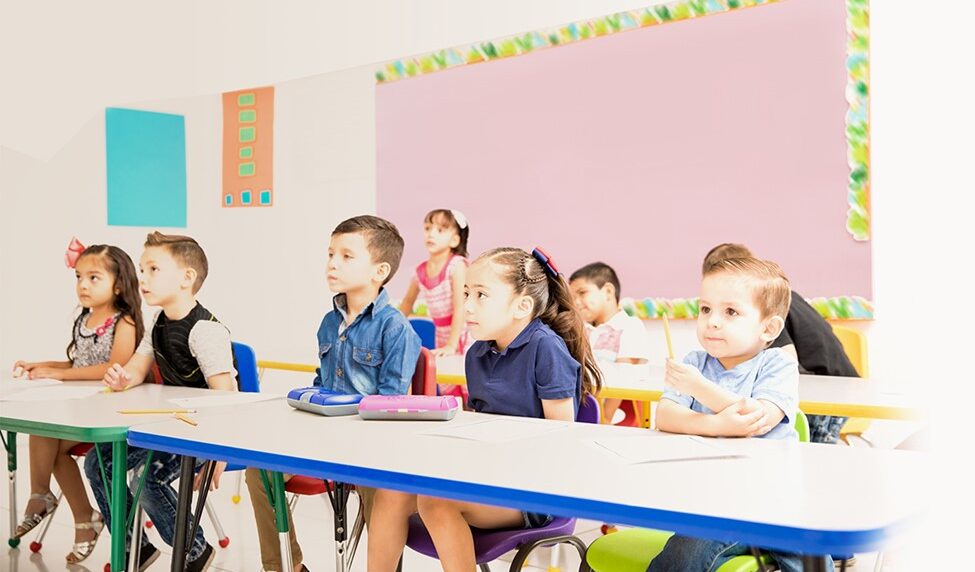This article was first published in May’s print edition of Business Monthly.
For most Egyptian families, if they could afford to pay for private tutoring (shadow education) alongside their kids’ formal education, the decision would be a no-brainer. Those classes are almost always with their kids’ “regular schoolteachers,” the Ministry of Education and Technical Education (MoETE) said in its 2023-2027 strategy.
Hassan Shehata, dean of curriculums at the Faculty of Education at Ain Shams University, told Al Masry Al Youm in November, “There is now no difference between students in public or private language schools. They all take private tutoring.”
MoETE estimates “81% of students in … secondary schools receive private tutoring, 64% of those in preparatory education, 56% of those in primary education, and 28% of those attending public technical secondary schools.”
Such a high dependence increases the education gap between children of parents with financial means and those from low-income families. That ultimately impacts their career options, MoETE said.
For the past two years, the ministry and Parliament have debated how to reduce the negative impact of private tutoring while capitalizing on its core benefit — helping students who need additional support.
Concerning landscape
Parents seek private tutors because of Egypt’s poor public schools. Data Pandas, a data curation portal, ranked Egypt 120 out of 177 countries in its Education Index, which considers education levels, literacy rates, and years of school.
The Mahmoud Bin Rashid Al Maktoum Foundation and the UN Development Programme ranked Egypt 80 out of 133 in “pre-university education.” The country’s worst ranking factors were expenditures to enroll in schools (104th), government funding (105th for primary students and 90th for secondary students), outcomes of the education process (90th), and gross enrollment ratio in early childhood education (101st).
At a November 2022 Parliament hearing, MoETE Minister Reda Hegazy said Egypt’s private tutoring was an EGP 47 billion ($975 million) business in fiscal year 2021/2022. The Ministry of Planning said the government spent just over EGP 53.8 billion on education that fiscal year.
Such a close gap shows parents are no longer confident in the formal education system, said Shehata of Ain Shams University. They feel teachers don’t explain appropriately in the classroom and that kids learn better in private classes.
In an August public session, Parliamentarian El Sayed Shams El Din said private tutoring has “spread to every city, neighborhood and even rural village.”
Parliamentarian Gihan Baoumy said at a public hearing in February that pre-university private tutoring alongside formal education has become more of a “social norm.” She said parents even reserve places with private tutors before the academic year starts.
Supplementary books by private publishers are another part of Egypt’s education problem, giving “model answers” to questions that appeared in past exams. “Those books … undermine the formal education system,” Shehata said.
High-risk solution
Despite originally aiming to help underachieving students, the fallout from Egypt’s shadow education is significant. “Private tutoring is the number one risk facing the formal education system,” said an August news report by state-owned Ahram Gate.
One of those dangers is that private tutoring increases academic disparity: Parents with financial means can afford the best tutors in more subject areas and with smaller groups.
MoETE’s 2023-2027 strategy document estimates the “richest 20% of households spend seven times more per student than the poorest 20%.” The wealthiest households also can allocate a larger share of their total spending (13%) to education than the poorest households (4%).
The other major problem is that private tutoring is an “additional financial burden on families, especially if they have more than one kid in school,” noted Iman Abbas, who wrote the Ahram Gate report. Meanwhile, with inflation nearly five times the Central Bank target of 7% plus or minus 2% the past few years, family budgets are more stretched than ever.
Private tutoring also cripples implementation of MoETE’s plans to improve education systems and curricula. Shehata said teachers making more money from tutoring will not be eager to implement changes that hurt their income.
Tough regulation?
Private tutoring has long been illegal in Egypt. Minister of Local Development Khaled Kassem told El Watan News in May 2023, “Tutors and centers that offer them teaching space are legally liable under that law.”
Realizing that outlawing private tutoring failed to prevent its spread, Hegazy presented a draft law to Parliament in November 2022 to regulate private tutors and the centers that support them. The aim is to ensure those tutors and centers don’t “take advantage of Egyptian families and to oversee that ‘parallel’ education process,” Hegazy said.
Parliamentarians rejected the proposal, saying that officially recognizing private tutoring undermines the importance of formal education and MoETE. In November 2022, Parliamentarian Reham Abdel Naby told the BBC such recognition also would “increase financial burdens on Egyptian families, as it effectively becomes part of the formal education system.”
In a November 2022 public hearing, Alaa Essam, a member of Parliament, said regulating private tutoring would only reinforce the rote-learning model by giving students “model answers” for likely exam questions.
In September, MoETE announced alternatives to the private tutoring ecosystem. The first is to increase the number of support classes given after official school days end for all basic subjects and languages.
The ministry said it would cost a nominal fee and offer the same setup as private tutoring, including significantly fewer students per class. MoETE would compensate teachers for giving those classes and allow students to choose their tutor.
Hegazy also said MoETE would produce more videos explaining all basic subjects’ lessons and post them on YouTube, the ministry’s website, and social media. Comment sections will allow students to interact with teachers. “That content would be free to all students, and we will choose the best teachers for those videos,” Hegazy said.
He said school inspectors would also conduct school surveys to determine the efficacy of printed formal material and textbooks, with the results and recommendations going to MoETE for evaluation.
The minister also announced in September 2023 that a new decree would investigate and penalize teachers who give private classes.
Real solutions
Those efforts don’t address the root cause of Egypt’s education system. Hegazy stressed that “private tutoring … is a ‘symptom’ of a ‘disease.’ We have to treat that disease.”
Experts say MoETE needs to enhance teacher capabilities and facility infrastructure. They also need more supportive, adaptive, and practical education methods and curricula. Accordingly, the “treatment” should include extra support for the least privileged students, improving teacher pay and work environment, and increasing cooperation with the private education sector.
Implementing such solutions will require “civil society support,” stressed Shehata of Ain Shams University. It would also require immediate “uploading of what teachers explained to various [digital] platforms and ensuring exams only come from that content, not parts they skipped in the subject books.”






